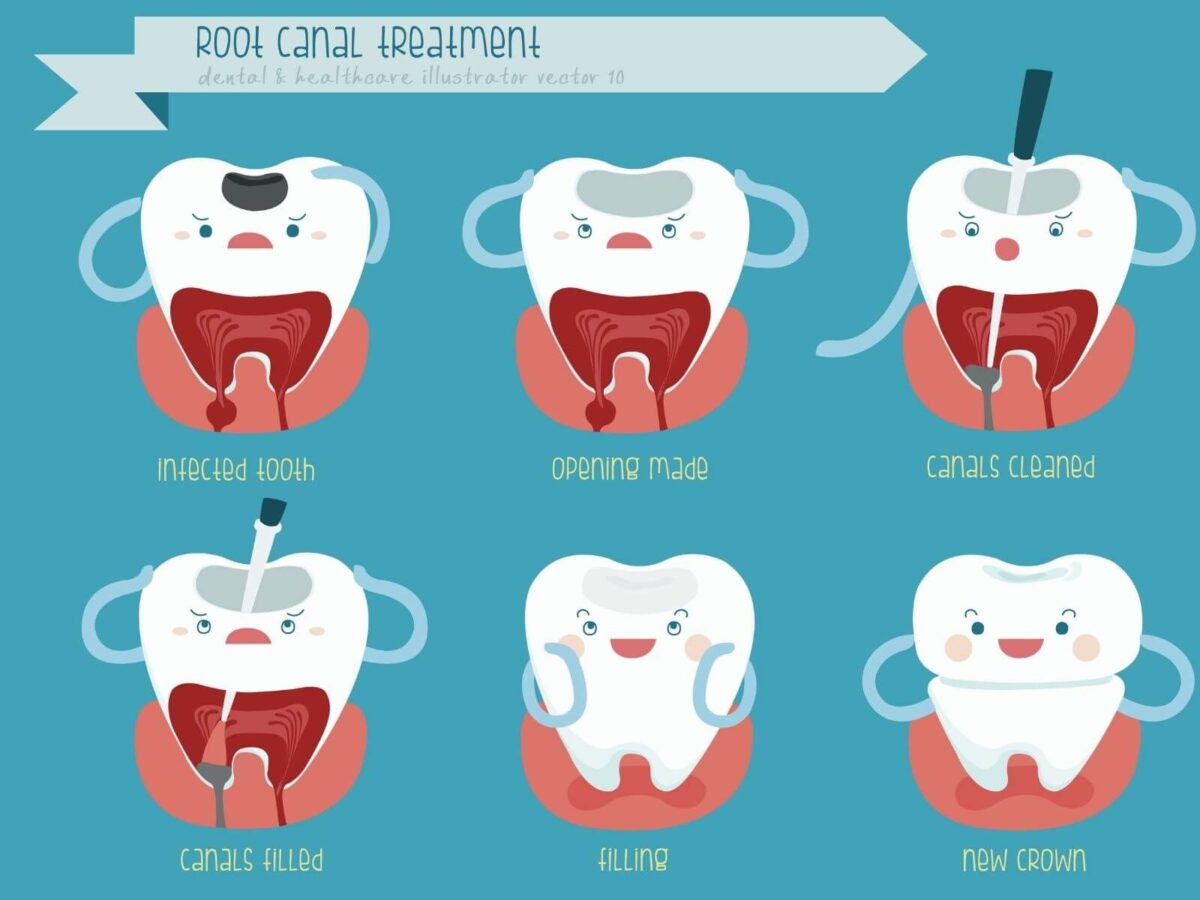Blog
Dental hygiene tips for healthy teeth & gums

Exploring Alternatives To Root Canal: What Are Your Options?
So, if you’ve got an infected tooth, a root canal might be the way to go. Some people are just not into getting the surgery because of the pain it brings. Fortunately, there are few root canal alternatives. Let’s have a look.
Overview of Root Canal Therapy
A root canal is a kind of dental surgery meant to eradicate germs from a tooth’s diseased root. A tooth infected or decaying from root canals can be saved if it is broken due to genetics or trauma or if it has extensive cavities and problems stemming from past fillings.
Enamel and dentin are the hard layers of the tooth; within those layers is soft tissue known as pulp with blood arteries, nerves, and connective tissue. While fully mature teeth can exist without the pulp since surrounding tissues give teeth the nutrition they need, the pulp helps teeth grow during their development.
In a root canal, infected or inflammatory pulp is extracted, the inside of the tooth is cleansed and sterilized, then filled and sealed. A dental crown or cap is placed on the spot of the surgery. Thus providing you the feel of an original tooth.
What Complications May a Root Canal Bring?
With good care, most of the time, the tooth that has a root canal treatment will last a lifetime. Sometimes, though, the treated teeth repair incorrectly, resulting in pain or disease months or years following treatment. In such circumstances, it may not be a choice, and root canal alternatives will be discussed.
Top 5 Root Canal Alternatives
For patients with an infected or rotting tooth, numerous therapy choices exist instead of a root canal. Here are the top 5 endodontic alternatives to root canal.
#1 Endodontic Retreatment
The tooth is reopened, and the filling materials left in the root canal following the first operation are taken out. The tooth is checked for further canals or fresh infections. Infection is eliminated; canals are shaped and cleaned; fresh filling materials are inserted. A temporary filling seals the opening; once the tooth heals, a new crown or other restoration is put on it to guard it.
#2 Direct Pulp Capping
This process helps to preserve vital pulp by treating exposed vital pulp with dental material, therefore promoting dentin restoration. Usually utilized pulp capping materials include calcium hydroxide and mineral trioxide aggregate. Following the application of the pulp capping materials, the tooth is filled.
#3 Pulpotomy
This operation is carried out on a tooth still in use, where blood flow continues and the tooth still reacts to temperature and feeling. Above the gum line, in the main portion of a tooth, the pulp known as coronal pulp is taken from a tooth. Usually carried out on infant teeth with pulp damage, but occasionally may also be done on permanent teeth with cavities reaching the pulp.
#4 Pulpectomy
Unlike a pulpotomy, this operation is carried out on teeth that are dead. Eliminating all the contents of the tooth’s inner chamber and thoroughly cleansing the root canal to guard it from further infection
#5 Endodontic Surgery
It can assist in locating little cracks or hidden canals undetectable on X-rays during the first treatment. It may also be utilized to repair damaged root surfaces or surrounding bone of the tooth or to remove calcium deposits in root canals. An apicoectomy, sometimes known as a root-end resection, is the most often performed surgery.
Using a local anesthetic, the gum tissue surrounding the tooth is exposed to view the underlying bone and eliminate any infected or inflamed tissue, as well as to remove the very end of the root. There may be a little filling to close the end of the root canal, and sutures are required.
Two months will see the bone recover around the end of the root.
Benefits of Other Root Canal Treatments
- One main advantage of alternative therapy is the retention of natural teeth. For patients worried about the aesthetic and practical consequences of tooth loss, this is absolutely vital.
- Less intrusive than root canal treatment, root canal alternatives lower the risk of pain, swelling, and infection.
- If numerous teeth need treatment, alternative procedures may be cheaper than root canal therapy.
- Less invasive alternative treatments enable patients to heal faster and continue regular activities.
- Root canal therapy raises the risk of root fractures and weakens teeth. Alternative therapies can lessen this danger and preserve tooth strength.
- Alternative therapies may be less unpleasant than root canal therapy; however, they may require many consultations and more treatment.
- These procedures may not work for all persons or dental issues. But, a dentist at Winnie Dental Office TX can recommend the best dental treatment.
Treat Your Infected Teeth Using an Alternative Approach
Depending on the particular situation, pulp capping and apicoectomy are two therapies available instead of root canal therapy that can be suitable for some patients. Although some circumstances call for these root canal alternatives to be successful, it is still the accepted method of treatment for infected tooth pulp.
Call us to get in touch with our dental team now if you are seeking dental treatment in Texas.


